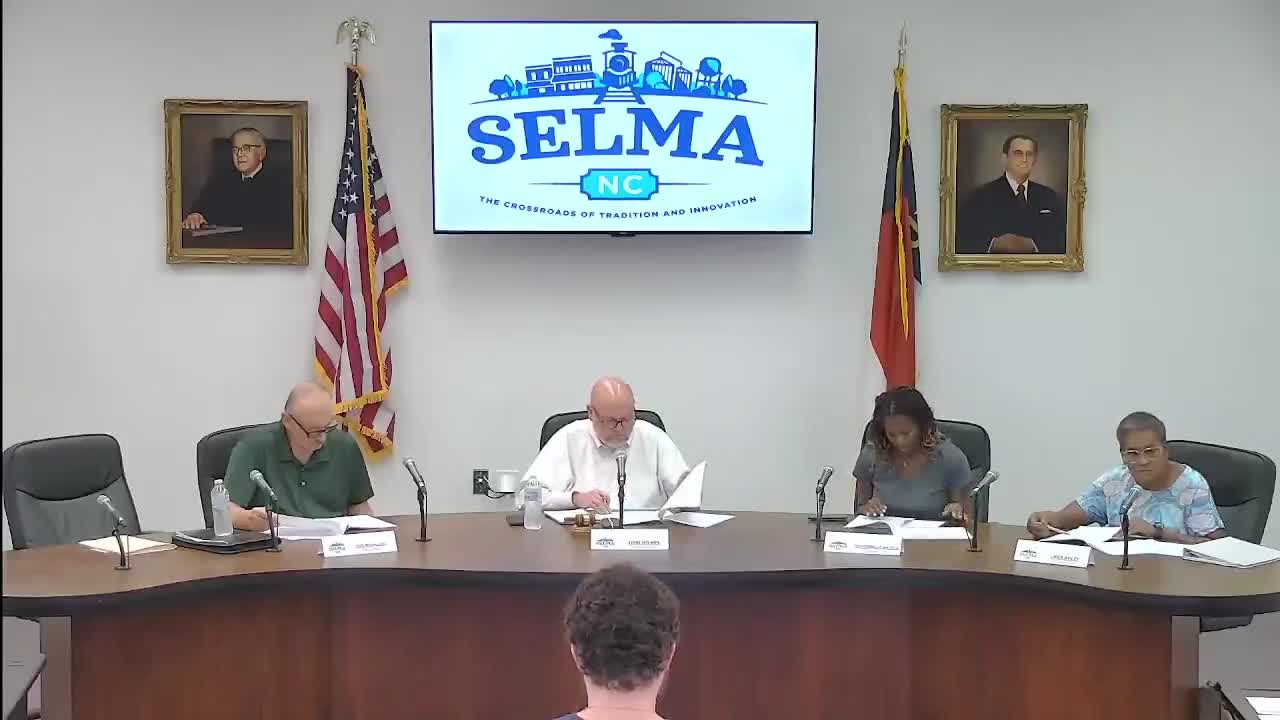Town Council Updates Sign Regulations to Support TR Zone Development
September 22, 2025 | Selma, Johnston County, North Carolina
This article was created by AI summarizing key points discussed. AI makes mistakes, so for full details and context, please refer to the video of the full meeting. Please report any errors so we can fix them. Report an error »

In the heart of Selma, North Carolina, the Planning Board convened to discuss vital updates to the town's sign regulations, reflecting the community's growth and evolving needs. As the meeting unfolded, board members focused on the transitional residential (TR) zoning, which has long been viewed as strictly residential despite allowing for nonresidential uses like offices and retail services.
The current signage code has posed challenges for businesses in TR zones, limiting them to a mere one square foot of wall signage—equivalent to a small, one-by-one-foot sign. This restriction has sparked concerns among local business owners who seek to attract customers along the busy Highway 301 corridor. To address this, the board proposed a more lenient approach, suggesting an increase in allowable signage for nonresidential uses. The new guidelines would permit up to 30 square feet of signage, a significant improvement aimed at fostering economic growth while maintaining the character of the area.
Additionally, the board discussed the introduction of sandwich board signs, which were previously prohibited for temporary uses. This change is expected to provide businesses with more visibility and flexibility in their advertising efforts.
Another key topic was the proposal to increase the number of sign faces on pole signs from two to three. This adjustment was prompted by a recent variance request from a local Dunkin' Donuts, which highlighted the need for more effective signage solutions without the necessity of constructing additional poles.
As the board anticipates further development along Highway 301, these changes are seen as essential steps toward accommodating both current and future businesses in the area. The discussions reflect a broader commitment to balancing residential needs with the economic vitality of Selma, ensuring that the town can grow while preserving its unique character.
The current signage code has posed challenges for businesses in TR zones, limiting them to a mere one square foot of wall signage—equivalent to a small, one-by-one-foot sign. This restriction has sparked concerns among local business owners who seek to attract customers along the busy Highway 301 corridor. To address this, the board proposed a more lenient approach, suggesting an increase in allowable signage for nonresidential uses. The new guidelines would permit up to 30 square feet of signage, a significant improvement aimed at fostering economic growth while maintaining the character of the area.
Additionally, the board discussed the introduction of sandwich board signs, which were previously prohibited for temporary uses. This change is expected to provide businesses with more visibility and flexibility in their advertising efforts.
Another key topic was the proposal to increase the number of sign faces on pole signs from two to three. This adjustment was prompted by a recent variance request from a local Dunkin' Donuts, which highlighted the need for more effective signage solutions without the necessity of constructing additional poles.
As the board anticipates further development along Highway 301, these changes are seen as essential steps toward accommodating both current and future businesses in the area. The discussions reflect a broader commitment to balancing residential needs with the economic vitality of Selma, ensuring that the town can grow while preserving its unique character.
View full meeting
This article is based on a recent meeting—watch the full video and explore the complete transcript for deeper insights into the discussion.
View full meeting
